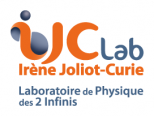Proposal
Ground-based detectors have been directly detecting gravitational waves since 2015. Their outstanding performances are allowed by improvement with respect to the basic operating principle of the Michelson interferometer. Suspended optical cavities have a key role in these improvements and have different functions in the interferometer. Two examples of such cavities are recycling cavities, used to increase the laser power in the detector and improve the signal to noise ratio at the detection port, and a filter cavity, coupled with the use of squeezed states of light for the reduction of quantum noise.
After the fourth Observing Run which is set to end in early 2025, the Advanced Virgo detector will be upgraded. One of the major scheduled upgrades concerns the replacement of the marginally-stable recycling cavities by stable recycling cavities. This will require developing and mastering control strategies for the new suspended optical cavities.
On the squeezing side, the implementation of the filter cavity to obtain frequency-dependent squeezed states of light is undergoing but currently limited by other noise sources in the full Advanced Virgo detector. The upgrade of the configuration of the full interferometer will allows to start seeing the impact of the filter cavity on the sensitivity curve of the detector. Reaching excellent levels of control of that cavity will be key to success.
The PhD candidate work will mainly be based at IJCLab in Orsay with both simulation and experimental aspects. IJCLab hosts the CALVA platform which is designed to study the control of a suspended cavity for Advanced Virgo with a 50m-long Fabry-Perot cavity. Moreover, the CALVA platform is now hosting the development of an in-vacuum squeezing source. By design, the tools used on the CALVA platform are the same as for Virgo, which facilitates sharing technology between the systems.
The first year of the PhD will be devoted to familiarizing with the current control strategies in place on the Advanced Virgo detector, including an initial mission of about 1 month on the Virgo site in Italy to learn with the commissioning teams.
Afterwards, there will be both simulation work on the Advanced Virgo cavities and on the CALVA 50m cavity which will be used to test control strategies. Near the end of the second year, the stable recycling cavities on the Advanced Virgo detector will be installed; the candidate will have a key role in the commissioning of the control of the cavities, spending at least 6 months on site with the team of experts of the control of the instrument.
Contacts
Angélique Lartaux (angelique.lartaux@ijclab.in2p3.fr), Nicolas Leroy
(nicolas.leroy@ijclab.in2p3.fr), Vincent Loriette (vincent.loriette@ijclab.in2p3.fr)









